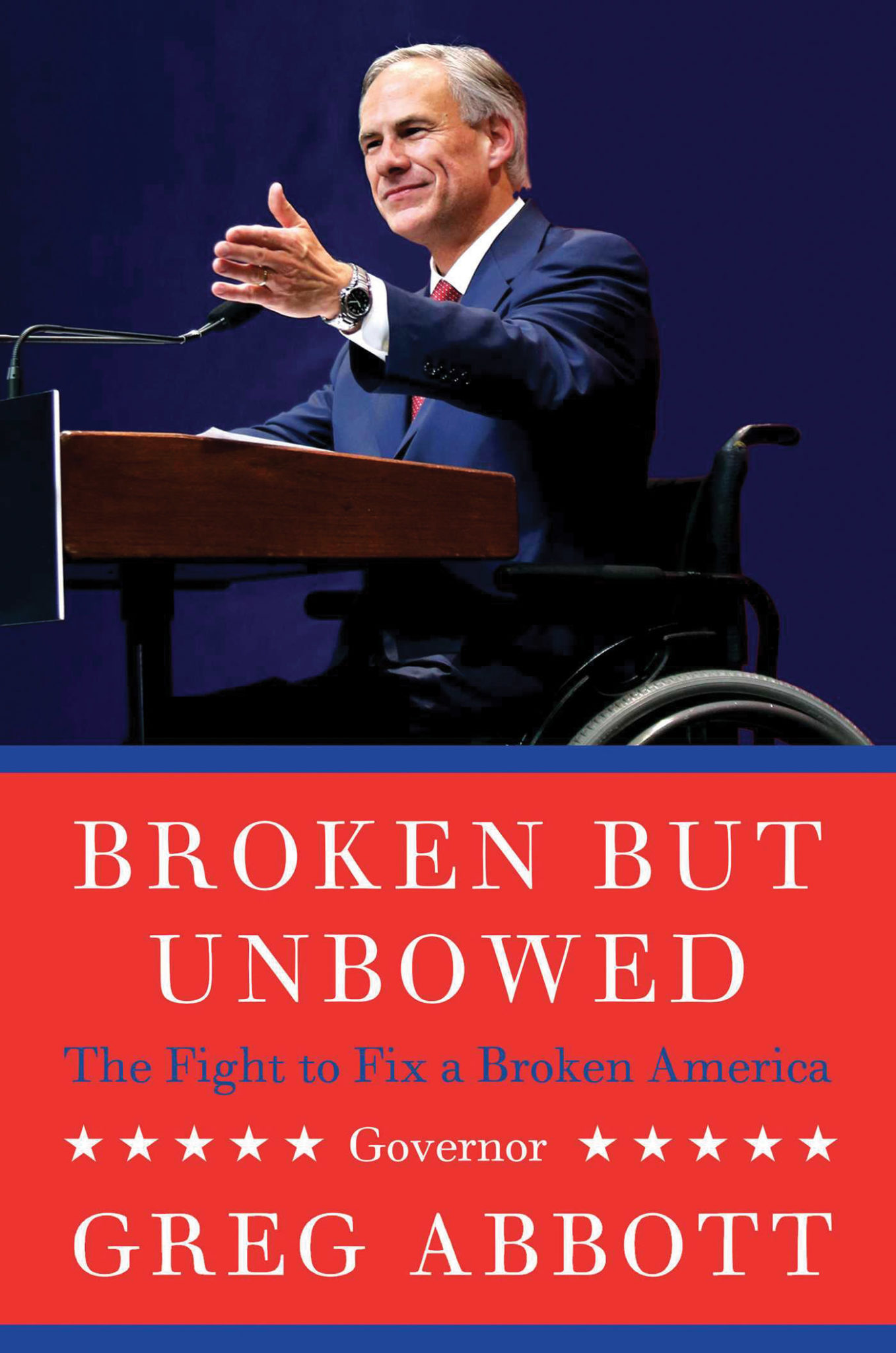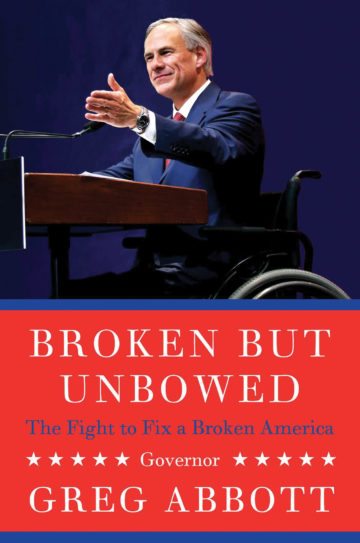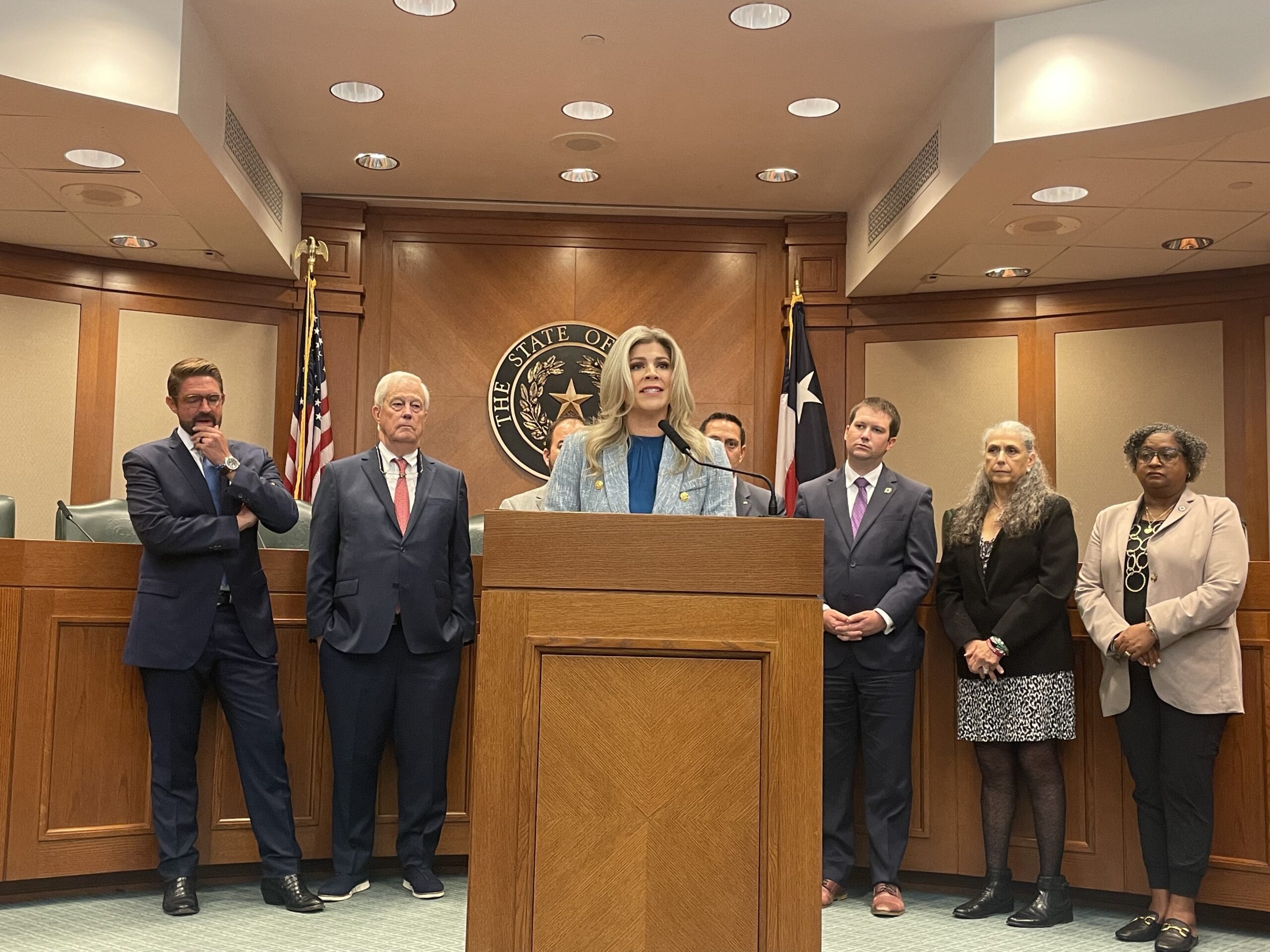
Conventional Wisdom: Greg Abbott’s Broken but Unbowed, Reviewed
In his first book, the governor hews to a familiar theme — fantasies of a constitutional makeover writ by him.

A version of this story ran in the August 2016 issue.
When Greg Abbott ran for governor, he had been in statewide office for nearly two decades, and we still didn’t know him all that well. We knew his biography, but it was harder to discern what animal spirits drove Mr. Abbott. Rick Perry’s rootless ambition and Dan Patrick’s manic lust for the spotlight made them familiar political characters, and made it easier to predict their next moves. If there is a Grand Unified Theory of Greg to be found, it has yet to present itself, a year and a half into his tenure as governor.

By Greg Abbott
THRESHOLD EDITIONS
320 PAGES; $28 Threshold Editions
Abbottology takes a half-step forward with Broken but Unbowed: The Fight to Fix a Broken America, Abbott’s entry in the peculiar category of politicians’ books. Part memoir, part political tract, these books typically contain serviceable prose constructed with the aim of humanizing their subjects, and they typically materialize shortly before their authors embark on a campaign for higher office.
Abbott’s book, instead, supports his quixotic but apparently sincere advocacy for a convention of the states to propose new constitutional amendments, which he believes is the only way to correct the nation’s mounting political dysfunction.
In promotional material, Broken but Unbowed is labeled a “deeply personal” account of Abbott’s life. It isn’t, really, with the exception of the first two chapters, a frank account of the horrific freak accident, shortly after his graduation from law school, that left Abbott paralyzed from the waist down. While he was jogging in Houston on a windy day, a large limb dropped on him, crushing his spine.
On the campaign trail, Abbott didn’t highlight his disability much beyond the sort of jokes one tells to make others comfortable. In Broken but Unbowed, he relates the whole story in sometimes agonizing detail. He recounts, matter-of-factly, that while lying in agonizing pain on a Houston street, his legs numb and stuck in a runner’s stride, he “remembered watching a movie with my wife a year earlier about a man who had been paralyzed by an accident. At the time, I told my wife that if that ever happened to me, just put me to death.” He describes the feeling of being loaded onto an ambulance with a crushed spine as like having “shards of glass grabbing and clawing my body with each and every movement.”
But the book quickly transitions to constitutional issues, with a few bits of biographical material, mostly about Abbott’s wife and daughters, thrown in to lighten the mood. We learn almost nothing about Abbott’s early childhood in Wichita Falls, his parents, his time in college or law school, or, for that matter, his time in public office.
Abbott’s rise from Houston lawyer to trial court judge to Texas Supreme Court justice to his election as attorney general, which spans 11 years of his life, takes up exactly two pages. The 2014 gubernatorial election takes up similarly little space, and when Broken but Unbowed does talk hard politics, there’s a certain fuzziness, which may come from the book’s ghostwriters. The book asserts, for example, that the abortion bill Wendy Davis filibustered was passed the next day. (It passed in the next special session, a fact that seems difficult to misremember given how that summer unfolded in Austin.)
So who would decide which Supreme Court decisions meet Abbott’s test, and are therefore eligible to be nullified? A Supremer Court?
By the time he declares that a 1985 Supreme Court case dealt the 10th Amendment “a massive blow — almost as if a huge tree had fallen on it,” the analogies have begun to get a little uncomfortable, though thankfully there are only a few more left in the book.
When the governor first announced his plan, I derided it to the point of calling it “Greg Abbott’s Easy-Bake Constitution Playset.” I still don’t buy it, but I take his interest in it more seriously. The political logic behind it seems strange. To ratify any new amendment, 38 states would have to give their assent. In the current climate, it seems doubtful 38 states could agree on the color of the sky, let alone on readjusting the balance of powers.
And I have a hard time wrapping my head around some of Abbott’s proposed amendments. He posits that a supermajority of states should be allowed to overturn Supreme Court decisions, and that the court should require a three-fourths vote instead of a majority in cases when a decision “alters the Constitution in a way that expands or contracts the rights or obligations of American citizens.” Though the way that the Supreme Court interprets the Constitution may change from year to year, the justices would never presume to rewrite it. So who would decide which Supreme Court decisions meet Abbott’s test and are therefore eligible to be nullified? A Supremer Court?
Quick fixes for America’s problems are in vogue right now. Broken but Unbowed is published by Threshold Editions, Simon & Schuster’s imprint for conservative books, which features a wide array of similar titles, such as Donald Trump’s offering, Crippled America: How to Make America Great Again. But polarization, politicized courts and abuse of presidential power — which Abbott sometimes posits began with Barack Obama — are the result of decades of gradual changes. They won’t be fixed quickly or simply, as Abbott suggests.
He writes, “I am living proof that we live in a country where a young man’s life can literally be broken in half and yet he can still rise up and become governor of his state and have a great family.” The story is inspiring. Abbott responded to his accident about as well as any person could hope to. The perseverance and fortitude he displayed are admirable.
Abbott’s book, instead, supports his quixotic but sincere advocacy for a convention of the states to propose new constitutional amendments, which he believes is the only way to correct the nation’s mounting political dysfunction.
Abbott acknowledges his good fortune. But he doesn’t address what would have happened to a less fortunate person. What if the person crushed by the tree were without insurance? Someone working menial, physical jobs to support children? Someone whose landlord was not so kind? Someone not already on the pathway to certain wealth?
As governor, Abbott has a say in the amount of kindness we show those people. He writes at length about his legal challenges to Obamacare, but elides the hardships faced by the uninsured people the bill sought to help — let alone the many people who now suffer because Texas declined to expand Medicaid.
The first hospital Abbott was taken to after his accident was then called Twelve Oaks Medical Center. A few years ago, it closed. A lot of hospitals have closed in Texas, and the medical community fears more will close in the coming years. Many serve poor and rural areas. Mortality rates — and serious complications from injuries — increase significantly the farther you are from an ER. Abbott may want to fix the Constitution, but there’s fixin’ to be done at home.


